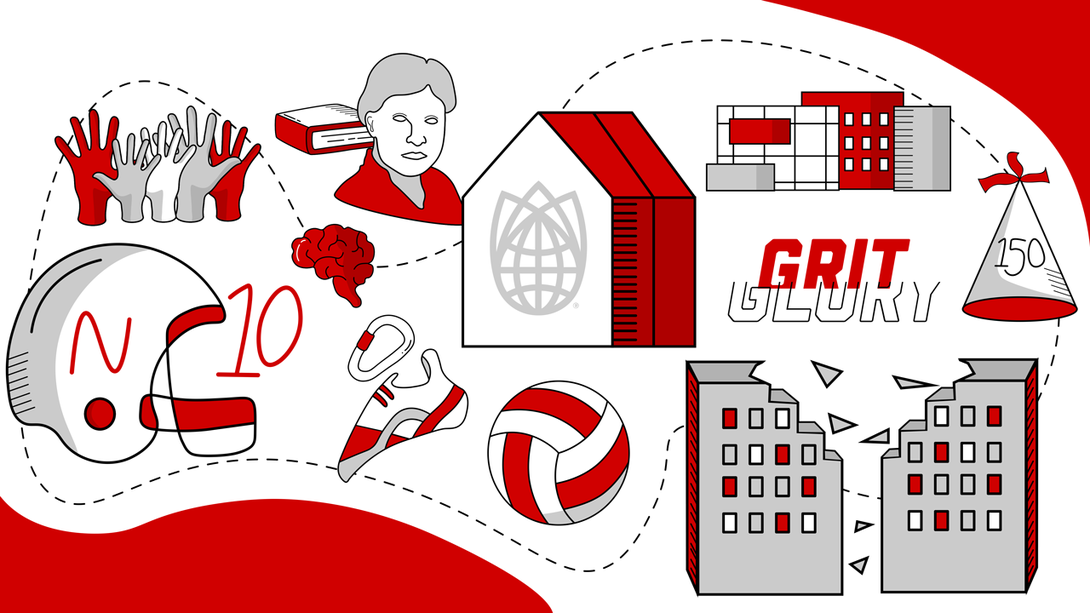
How much can happen in 10 years?
On Jan. 1, 2010, the University of Nebraska–Lincoln was still a part of the Big 12 athletic conference and had no permanent home for its research endeavors. The use of drones was the stuff of science fiction, and the State Fair had just moved to Grand Island to make room for Nebraska Innovation Campus.
As the university enters a new era, Nebraska Today is looking back at the events that defined the decade and transformed campus.
2010

At the beginning of 2010, there were murmurs of conference realignment, but publicly, Nebraska was firmly entrenched in the Big 12. That changed June 11, when it was formally announced that Nebraska was indeed joining the Big Ten, as well as the Committee on Institutional Cooperation. The university was enjoying a year of growth. Most notably, the Whittier Research Center opened following a $20 million renovation to the former Whittier Junior High School. Other changes were afoot as well:
- The Water for Food Institute was founded in April with a gift of $50 million from the Robert B. Daugherty Charitable Foundation. The interdisciplinary institute has become a global leader in freshwater research, management and policy guidance.
- The Jackie Gaughan Multicultural Center opened in April 2010. The 30,000-square-foot facility was the nation’s largest multicultural center attached to a student union.
- Robert E. Knoll Residential Center opened in the fall, adding a 565-bed suite-style housing unit to campus. Knoll was the first suite-style residence on campus.
2011
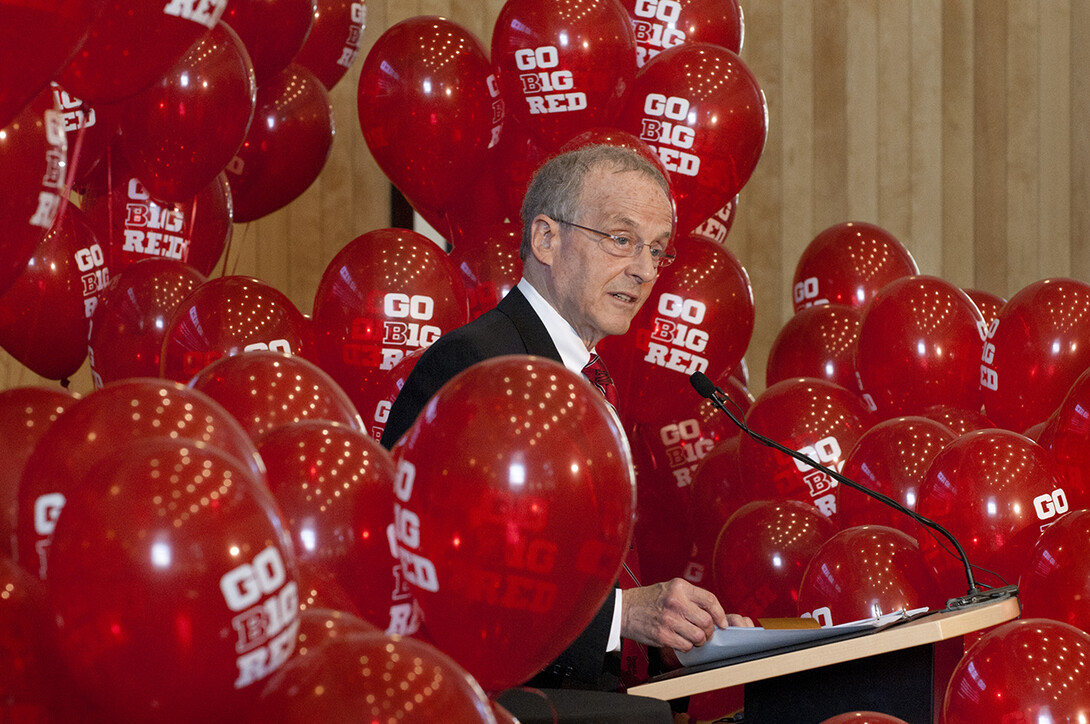
Nebraska became an official member of the Big Ten, and Chancellor Harvey Perlman touted the academic strength and culture of the new conference. A campus-wide celebration was held July 1. Also on campus and around Lincoln:
- University and city officials worked together to build public support for a new arena in Lincoln. The arena was needed to replace Pershing Auditorium and to host a growing fanbase of Nebraska men’s and women’s basketball. Voters passed the $25 million bond to build the arena in May, and Pinnacle Bank announced naming rights in December.
- The university launched the nation’s first Drone Journalism Lab, under the direction of Matt Waite, professor of practice.
- A gift from Omaha philanthropist Susie Buffett helped establish the Buffett Early Childhood Institute at the University of Nebraska.
2012
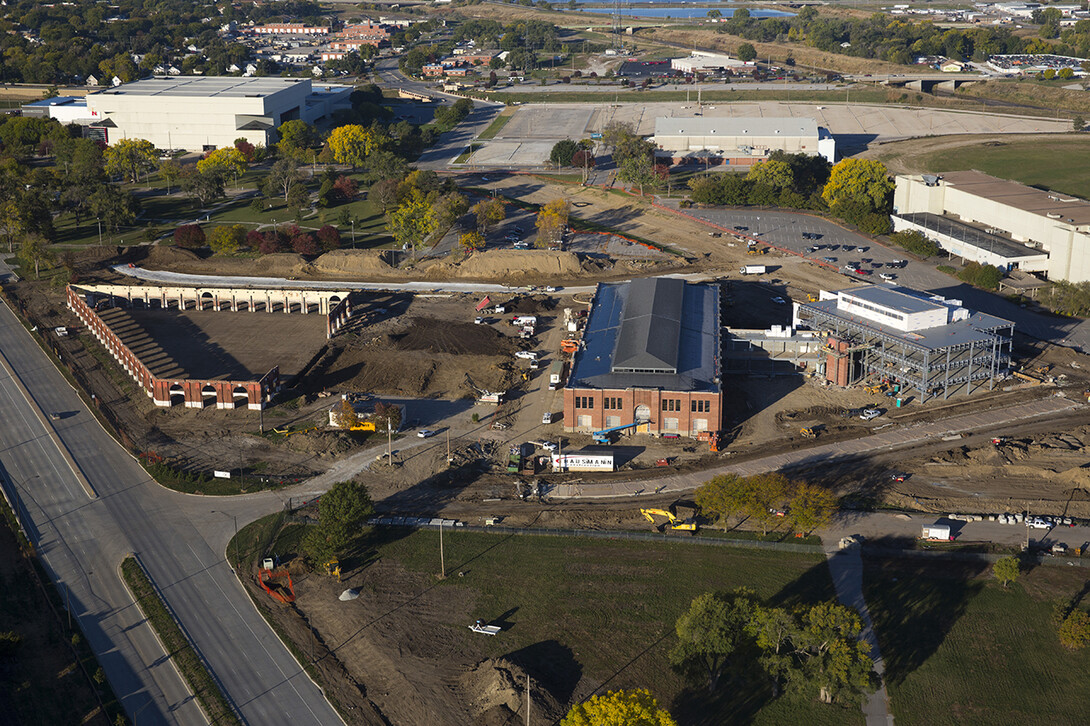
Nebraska Innovation Campus — which had been an abstract idea to many Nebraskans — began taking shape. The university broke ground on the future research and business park Nov. 16, and announced at the same time that ConAgra would be the park’s first tenant when the first buildings were finished. Also, in 2012:
- The university began offering ‘employee plus one’ benefits for domestic partners. The Board of Regents voted to enact the change June 8.
- Lady Gaga launched the Born This Way Foundation, with Nebraska scholar Sue Swearer chairing its Research Advisory Board. The university is a current partner with the foundation.
- High-energy physicists at Nebraska were part of the international team that discovered the ‘God Particle.’ The discovery of the Higgs Boson would go on to win the Nobel Prize in Physics.
2013
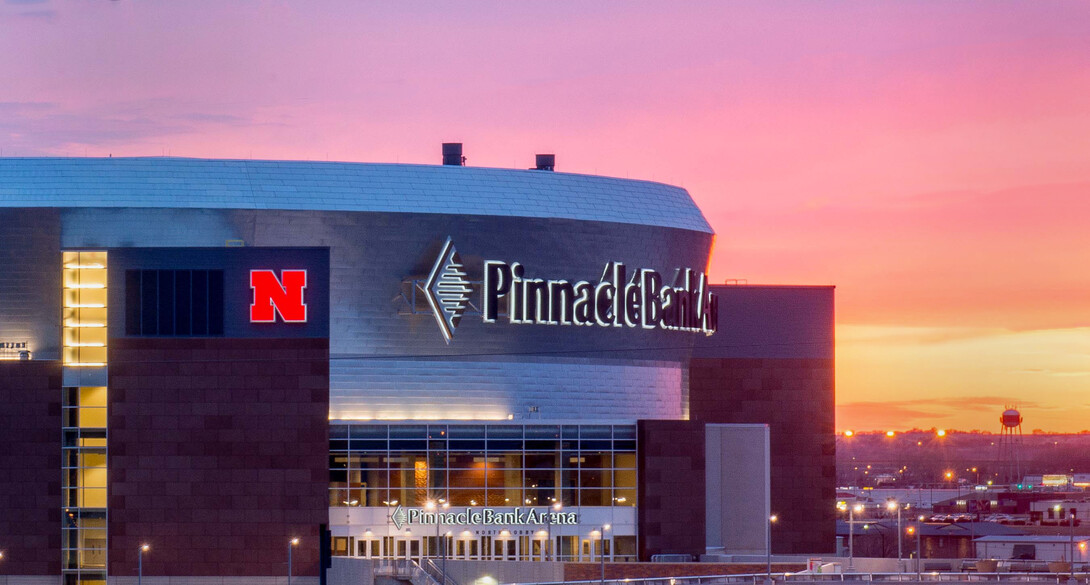
Public and private investment in the university came to fruition in a big way in 2013. Downtown Lincoln’s Pinnacle Bank Arena opened in August, with its first event being August commencement for Nebraska graduates. The arena also welcomed the start of basketball season in the fall. Meanwhile, the Devaney Sports Center completed its conversion into a volleyball mecca. Across campus:
- The East Stadium expansion of Memorial Stadium was completed, which further integrated academic and athletic pursuits through the new Center for Brain, Biology and Behavior and the Nebraska Athletic Performance Lab.
- An $8 million gift established the Glenn Korff School of Music in August.
- The WISSARD team found aquatic bacteria under a half-mile of Antarctic ice.
- Nebraska alumna Willa Cather was celebrated again when some of her letters were published for the first time in a book co-edited by professor Andrew Jewell.
2014
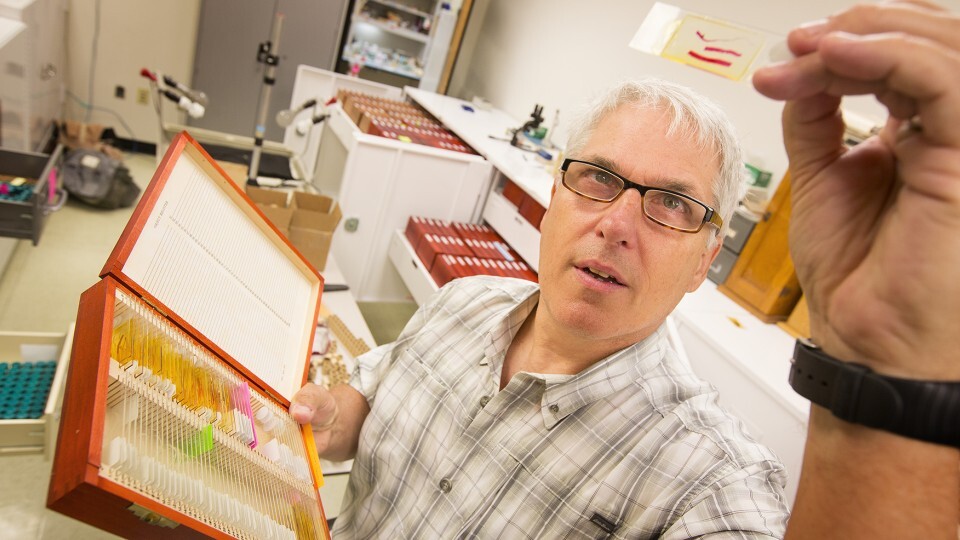
Husker scholars made national news with several groundbreaking scientific discoveries in 2014. The ANDRILL team — a geological drilling project based in Antarctica — started the trend with headlines at ABC News, Smithsonian Magazine and National Geographic among others in January, following a published article identifying a new species of sea anemone. The discovery was made in 2010, but verification and publication in PLOS One took three years. Other wide-reaching discoveries and events of note include:
- Husker virologists and Johns Hopkins colleagues discovered that an algae virus can jump to humans.
- Parasitologist Scott Gardner was among an international group of scientists that identified a pinworm from 240 million years ago. The most ancient pinworm in the fossil record was found in a piece of fossilized dung.
- Campus recreation offerings expanded when the Outdoor Adventures Center opened.
- Longtime NU system president J.B. Milliken announced his resignation. Milliken was appointed Chancellor at the City University of New York.
2015
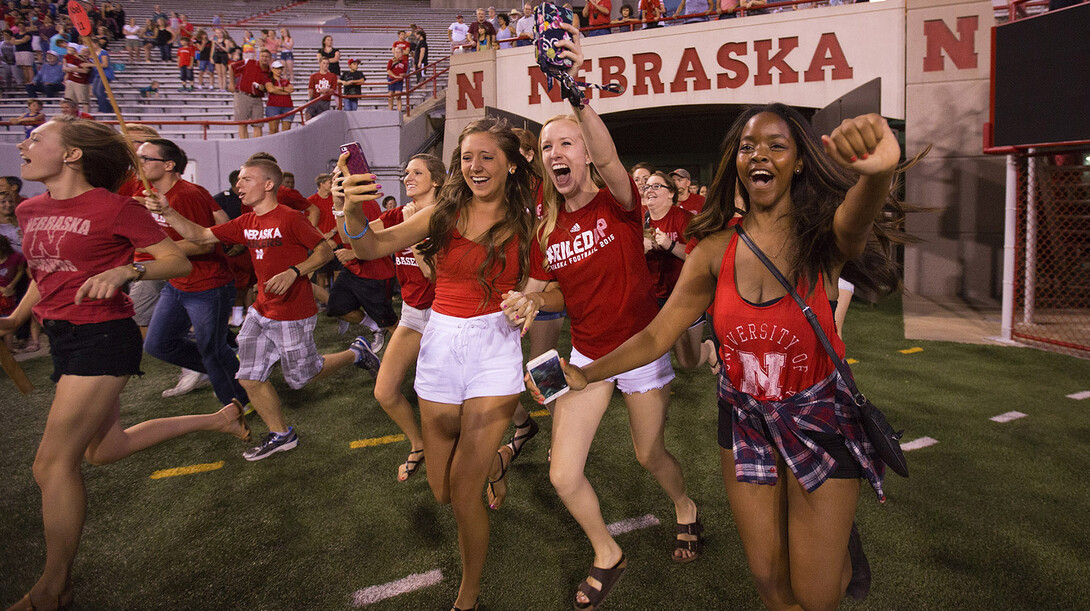
Transitions of leadership marked the middle of the decade at the University of Nebraska–Lincoln. Following Milliken’s resignation, the Board of Regents appointed Mississippi educational leader Hank Bounds as president of the NU system in January. In April, Chancellor Harvey Perlman announced plans to step down and return to the faculty in the College of Law, launching a search for a new Chancellor. During his 16-year tenure, Perlman had challenged the university to grow, and 2015 was evidence of that momentum:
- Student enrollment reached an all-time high of 25,260. This record was broken again in 2016 and 2017.
- Nebraska Innovation Campus held its grand opening. Although still under construction, NIC opened with the Greenhouse Innovation Center, Food Innovation Center and Innovation Commons completed.
- The new East Campus Recreation and Wellness Center opened in July, providing more fitness options than ever before for students, faculty and staff.
- The Military and Veteran Success Center opened, providing renewed support to student veterans.
2016
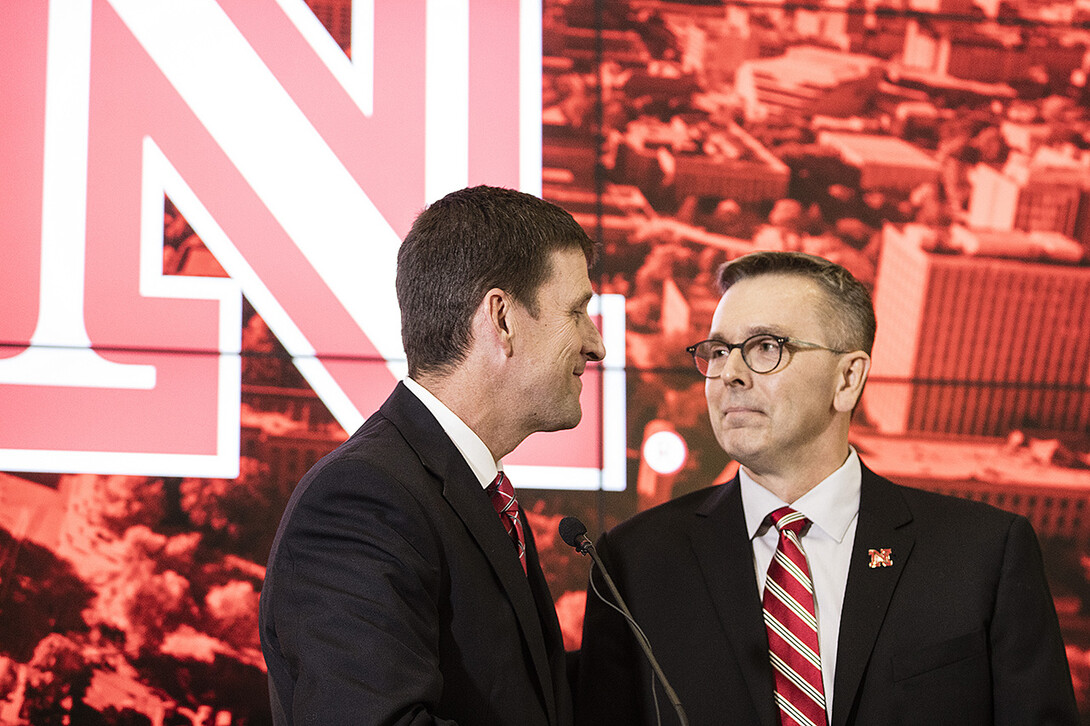
Following a national search, Nebraska’s own Ronnie D. Green was named chancellor of the university in April. Green kick started his tenure, but hit a slight snag when state legislators began signaling future budget cuts due to a revenue shortfall. The NU system responded with a hiring freeze and travel restrictions. Still, campus continued its growth streak:
- Love Library became a student hub when the Adele Hall Learning Commons opened.
- Nebraska engineering received national attention when professors Chris Tuan and Lim Nguyen invented conductive concrete, which de-ices itself.
- The largest freshman class ever to enroll arrived on campus in the fall. The previous record had been set in 1979.
- The Nebraska Food For Health Center was launched with support from the Raikes Foundation and the Bill and Melinda Gates Foundation. The multidisciplinary center brought together strengths in agriculture and medicine from throughout the university system to develop hybrid crops and foods and improve quality of life.
2017
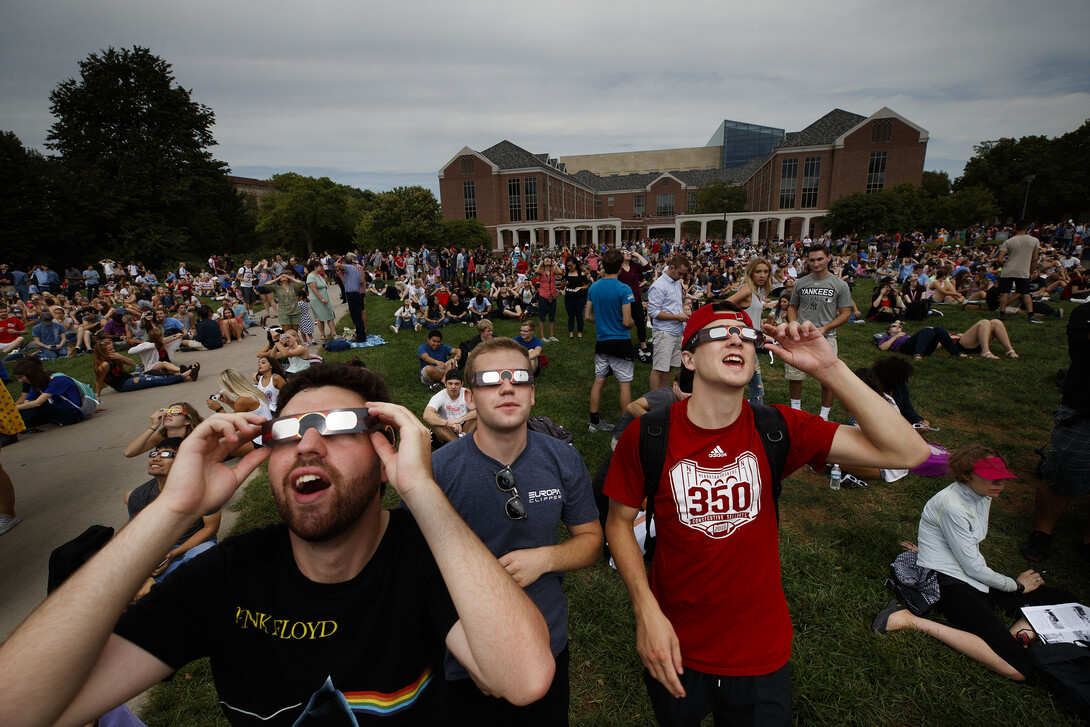
Out with the old, in with the new. After five years of planning, fundraising and construction, Nebraska’s College of Business moved to the $84 million, 240,000-square-foot Howard L. Hawks Hall at the start of the fall semester. The year ended with a rumble, as the university imploded Cather-Pound Residence Hall in December. The footprint of the buildings was converted to a temporary green space.
Campus was buzzing the first day of fall semester, but this was different from the normal first-day jitters. A rare total solar eclipse was visible in Lincoln Aug. 21. Students, faculty and staff gathered on walkways and malls across the university, using special cardboard glasses to watch the sky go dark at 1:02 p.m.
A statewide budget shortfall led to a system-wide effort to find savings of $49 million. Many administrators were asked to serve on Budget Response Teams and make recommendations. Changes included streamlining travel requests, centralizing information technology services, consolidating human resources offices on campuses and reviewing benefits vendors.
East Campus was expanded with the addition of Massengale Residential Center, which opened for student housing in the fall.
A new behavior of light was also discovered with the world’s then-brightest laser.
2018
With an eye on the upcoming 150th anniversary of the university’s founding, Chancellor Ronnie Green established the Commission of 150, comprised of faculty, students, staff and stakeholders, and charged them with crafting the vision for Nebraska’s next 25 years. Though campus had an eye on the future, nothing detracted from these 2018 events:
- The new University Health Center opened to serve students’ physical and mental health needs. The center also houses the Lincoln division of the University of Nebraska Medical Center’s nursing program.
- A new brand house and marketing campaign launched. “In Our Grit, Our Glory” became the Husker rallying cry.
- The Athletic Department began funding a new scholarship program for non-athletes. Husker Scholars is funded with a $5 million annual contribution from Athletics and provides more than 3,000 awards to students each year.
- A Nebraska-led discovery of two new fatty acids was the world’s introduction to Nebraskanic Acid.
- University of Nebraska–Lincoln researchers achieved a record $308 million in total research expenditures.
2019

Nebraska celebrated the 150th anniversary of its founding throughout 2019. Charter Week, held Feb. 11-16, included a gala, lectures, alumni and community celebrations, and Glow Big Red. During the celebration, the University of Nebraska State Museum at Morrill Hall opened its newly renovated fourth floor exhibition, “Cherish Nebraska.” The momentum of the university continued:
- University leaders announced plans in September for a new, $85 million engineering building, made possible with a $20 million gift from Peter Kiewit Sons’ Inc.
- The Johnny Carson Center for Emerging Media Arts opened to students in August, hosting a grand opening celebration Nov. 15-17.
- Chigozie Obioma, assistant professor of English, made the Booker Prize shortlist for a second time with his second novel “An Orchestra of Minorities.”







